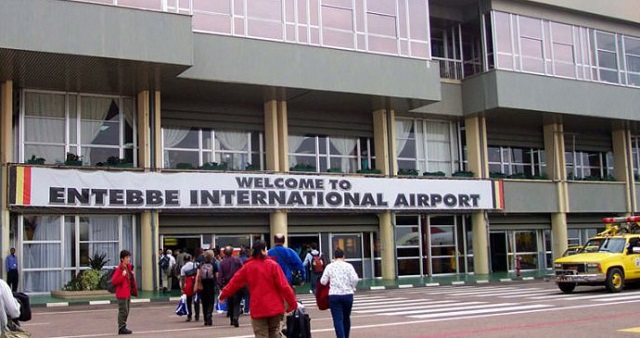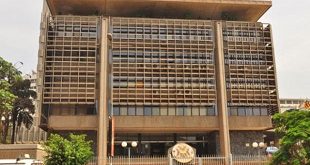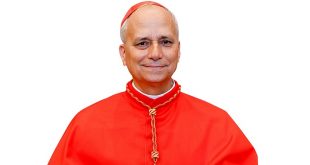
The fish rots from the head’ say experts
Kampala, Uganda | Mubatsi Asinja Habati | Since mid-January in Uganda social media platforms have been awash with videos of travelers through Entebbe International Airport complaining about cases of extortion of bribes and unlicensed payments by airport staff.
Following the outcry, the Uganda Civil Aviation Authority (UCAA) came out and suspended some of their employees pending investigations into the allegations.
Since extortion of bribes are a form of corruption which is noted for serious political, economic and moral consequences on any community, experts have since offered views and possible solutions to the vice.
“Those people arrested for extortion at the airport were learning from the big fish that steal and go unpunished,” says Paul Nyende of Makerere University School of Psychology, “Their audacity to steal from passengers at the airport shows they have no shame.”
Nyende says to end this vice requires raising a new a generation of leaders that do not tolerate corruption.
“Punish everyone involved in the vice whether big or small,” says Nyende.
Nyende’s fellow don from the political history section of Makerere University, Dr Mwambutsya Ndebesa, says when discussing corruption in Uganda, the debate is mistakenly concentrated on embezzlement of public funds. He says “corruption is bigger than embezzling public funds”.
Ndebesa told The Independent: “The IGG (Inspector General of Government) actually spends more time on financial embezzlement when the worse forms of corruption are elsewhere. These other forms of corruption include but are not limited to; nepotism, tribalism, influence peddling, patronage, wastefulness of public resources, grabbing public land, awarding tenders and government contracts fraudulently, bribing voters, falsifying public procurements, recruiting and promoting public servants based on patronage, abusing public offices etc.”
According to reports, some aviation officials at Entebbe, Uganda’s only international airport, have made a habit of holding hostage on flimsy excuses passengers anxious to either board flights or enter the country. The airport staff allegedly demand bribes to let them through ticketing, immigration, boarding, and arrivals. Passengers who refuse to offer bribes have in some cases allegedly missed flights or had property confiscated.
The country was taken aback when several citizens came out on social media to tell how they had been pulled off boarding aircrafts even when they had all requirements on flimsy grounds because an immigration officer or security officer wanted a bribe.
But experts say that the incidents at Entebbe, taken together with other recent activities such as the cutting down of electricity masts by some unscrupulous metal dealers, show a serious breakdown in morals, values and ethics in the country.
This stems from the fact that some of the workers in government agencies and departments get jobs through bribery.
Corruption at district level
On June 26 during celebrations to mark Uganda’s Liberation Day in Kakumiro District, President Yoweri Museveni spoke tough on corruption.
“I commend government agencies that are fighting corruption. I heard they are arresting some people and making some to refund the money they stole. This is good but not enough,” he said.
But he did not speak directly about the extortions at Entebbe International Airport.
Instead he went after the District Service Commissions which he described as “dens for the corrupt”.
He said he has heard the District Service Commission members are selling jobs and that girls were being violated sexually in return for jobs.
“Get evidence so that those pigs should be arrested,” he said, “We will open space for them in prisons. The DISOs and GISOs are put on notice. How can corruption thrive when you are there?”
Following Museveni’s remarks, many commentators have said it is surprising that the President has only now got information about the many corruption practices at district level, including the selling of jobs.
Just last year, the Chief Accounting Officer (CAO) of Ntoroko District was arrested for creating jobs for over 400 employees. Some people paid up to Shs8 million to some members of the service commission in a bid to secure the local government jobs. Some of them did not have the academic qualifications for the jobs.
It is alleged the CAO also superintended over gross irregularities in recruitment, appointment and promotion of staff on the District payroll in which many staff were promoted on accelerated promotion, others without certifications and other employment legal requirements and have been paid salaries; including arrears.
By the time of the arrest of the CAO last year, the term of the implicated Ntoroko District Service Commission had expired on May 03, 2021.
Trouble for the Ntoroko CAO started on March 24, 2022 when the Fort Portal Regional Inspectorate of Government Office began conducting an inquiry into alleged irregular recruitment and appointment of District Local Government staff and use of forged documents by the CAO and some employees of Ntoroko District Local Government.
Beti Kamya, the Inspector General of Government (IGG), lauded members of the public who came out to expose the alleged fraud at Entebbe International Airport, saying the shared information will be key in the investigations that the inspectorate is yet to carry out on the matter. The IGG said the war against corruption cannot be won through boardroom discussions by government officials. She called upon the general public to continue exposing all elements of corruption, especially in the government ministries, departments and agencies.
“As the IGG, I want to applaud the (ordinary) citizens of Uganda, who have come out to expose the extortion at the airport. These are our heroes because they are not politicians, religious leaders or government officials, but local Ugandans who have come out to say enough is enough to corruption,” Kamya said.
She added: “This should not stop at the airport, let us extend it to all sectors. Whoever asks for a bribe from you, come out and make an alarm to us, take a photo of any corrupt official you come across so that we deal with them accordingly,” she added.
Kamya said the Inspectorate of Government has investigated at least 21 cases of corruption in UCAA in the last five years. Having this in the background, Beti Kamya argued that, “it is not enough for UCAA to say that it has terminated the employment of staff found culpable of extortion at the airport. She said people found guilty of corruption should not only lose their jobs but also be charged and their property confiscated.
“It should be clear that whoever is found culpable of corruption or acquiring of wealth in any illicit way shall be prosecuted according to the Illicit Acquisition of Wealth Act or the Money Laundering Act,” she said.
Empower communities
James Penywii, Director of Projects at the Inspectorate of Government, says corruption thrives in an environment where people lack information.
“In most cases the corrupt take advantages of people’s lack of information to steal or cheat them,” Penywii says, adding that: “in areas where we have empowered the communities with information regarding how to detect corruption, we have registered 98% success in implementing government projects.”
So why is this approach not being implemented in all government projects? Bureaucracy. The Cabinet already approved the approach of involving community monitors in all government projects and educating the masses first before projects are implemented but implementation has delayed.
This is the approach Uganda’s Inspectorate of Government is taking by involving citizens, the community monitoring groups, to keep an eye on implementation government programmes and report cases of corruption for action. Experts say that this approach drives home the importance of individual choices in enabling or resisting corruption.
All successful corruption efforts ultimately change how individuals behave around rules and laws – and it is critical to hold on to that core and simple truth.
In his article, 10 ways to end corruption, Robert Hunja, the Director for Public Integrity and Openness in the World Bank’s Governance Global Practice argues that governments should act globally and locally by keeping citizens “engaged on corruption at local, national, international and global levels – in line with the scale and scope of corruption. Make use of the architecture that has been developed and the platforms that exist for engagement.”
 The Independent Uganda: You get the Truth we Pay the Price
The Independent Uganda: You get the Truth we Pay the Price



